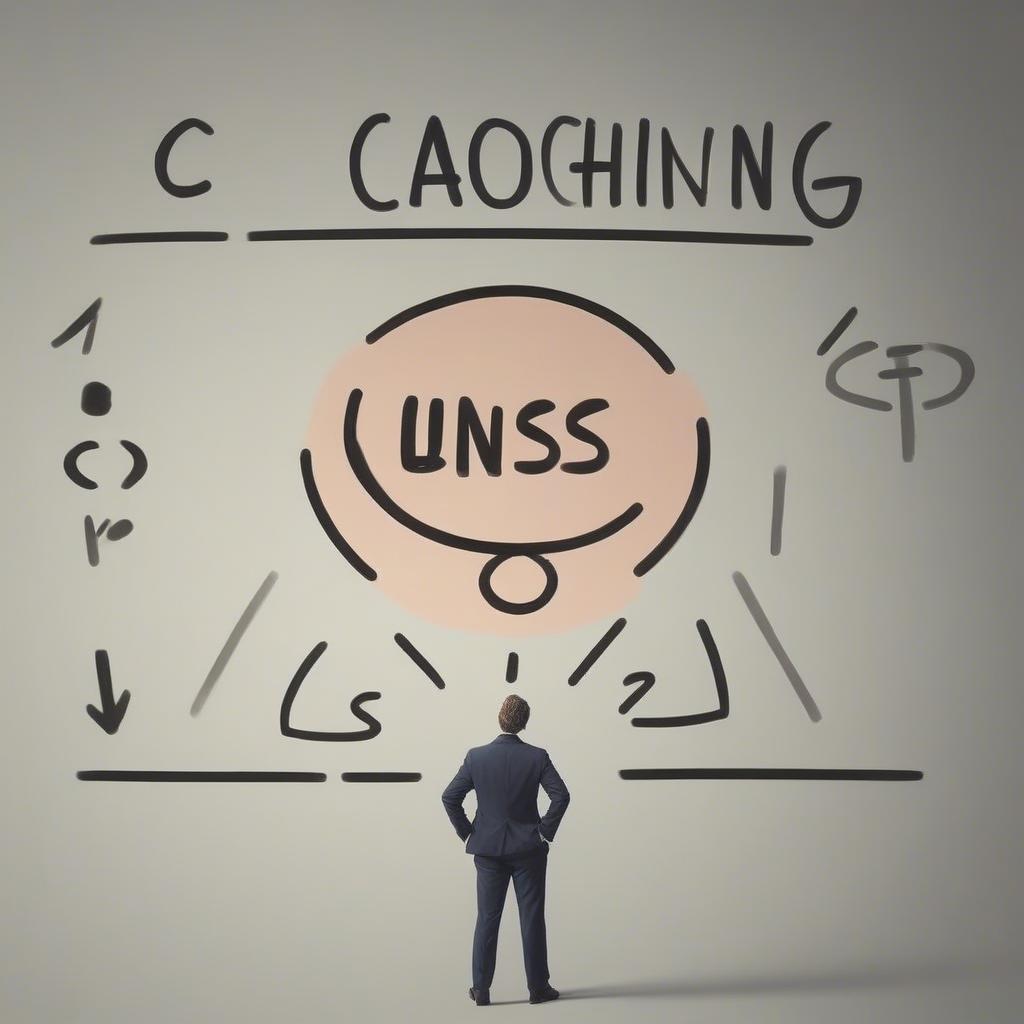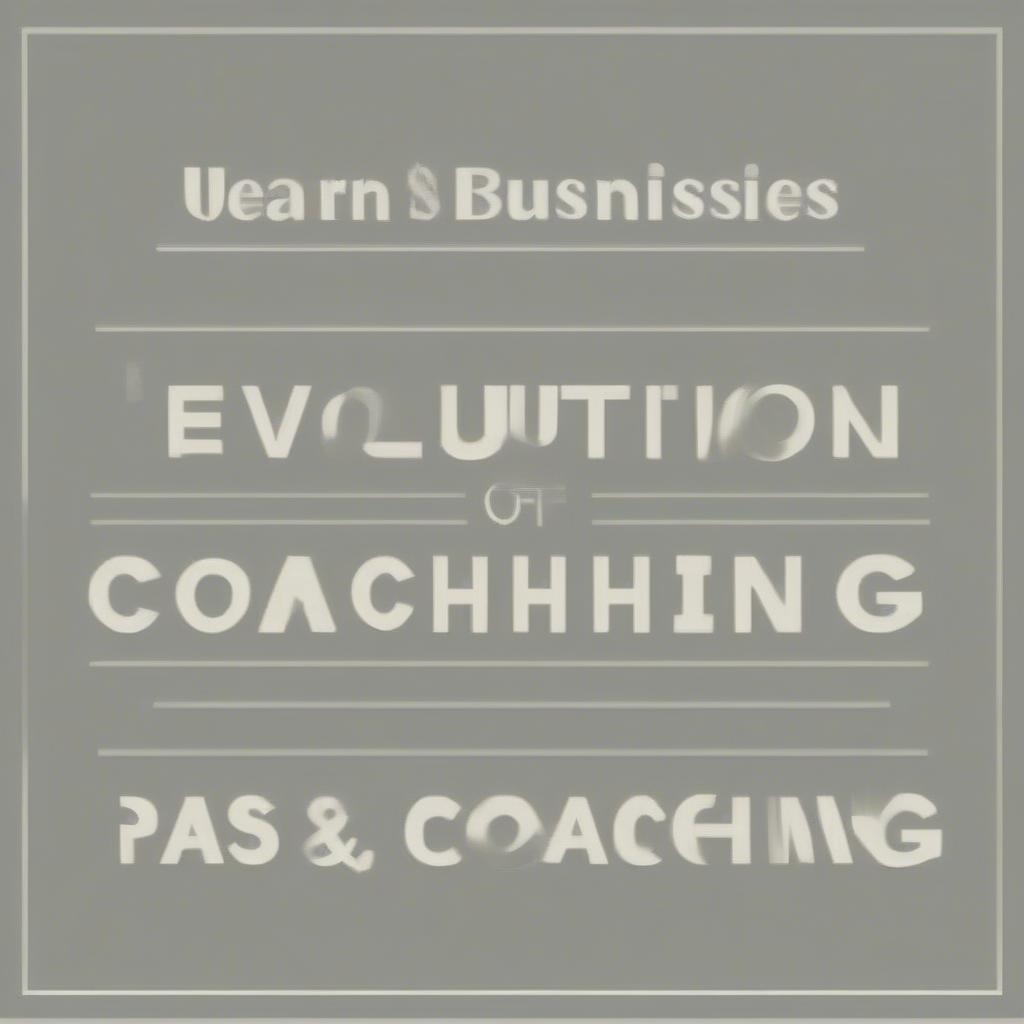
The Heart of Coaching: Why Emotional Intelligence Matters
Imagine a coach who is technically brilliant, armed with the latest strategies and methodologies, yet struggles to connect with their clients. They might be delivering the perfect advice, but it lands flat, failing to resonate or inspire. This is where the magic of emotional intelligence (EQ) comes in. It’s the vital ingredient that transforms a good coach into an exceptional one, forging a deep connection and driving meaningful change.
But what exactly is emotional intelligence? It’s more than just being "nice" or empathetic; it’s the ability to recognize, understand, and manage your own emotions and the emotions of others. In the context of coaching, EQ becomes the very foundation upon which successful, impactful client relationships are built. It allows you to create a safe space for growth, navigate complex emotional landscapes, and ultimately empower your clients to achieve their full potential.
The Core Components of Emotional Intelligence in Coaching
To truly understand how EQ works in coaching, let’s break down its core components:
-
Self-Awareness: This is the bedrock of EQ. It’s about having a clear understanding of your own emotions, triggers, and how they impact your interactions. As a coach, self-awareness lets you identify your biases, manage your reactions, and be fully present for your client.
- Example: A coach who is aware of their tendency to interrupt will consciously practice active listening, allowing their client to fully express themselves without feeling judged or cut off.
-
Self-Regulation: Once you’re aware of your emotions, the next step is managing them effectively. Self-regulation in coaching means controlling impulsive reactions, handling stress constructively, and maintaining composure under pressure.
- Example: A client expresses frustration with their progress. A coach with good self-regulation will avoid becoming defensive or taking it personally, instead responding with empathy and seeking to understand the client’s challenges.
-
Social Awareness (Empathy): This is the ability to understand and share the feelings of others. In coaching, empathy allows you to truly connect with your client, see the world from their perspective, and build a sense of trust.
- Example: When a client shares a story of failure, an empathetic coach doesn’t just offer platitudes. They actively listen, acknowledge the client’s pain, and create a space for them to process their feelings without judgment.
-
Relationship Management: This involves using emotional skills to build and maintain positive relationships, navigate conflict, and inspire others. In coaching, relationship management allows you to build rapport, manage difficult conversations, and motivate your clients toward their goals.
- Example: A client is hesitant to try a new approach. A coach with strong relationship management skills would respectfully challenge the client’s resistance, explain the benefits, and help them see it as an opportunity for growth rather than a threat.
The Tangible Benefits of EQ in Coaching
Understanding these core components reveals why emotional intelligence is so vital for coaching success. It’s not just a “nice to have,” it’s a must-have for coaches who aim to make a profound impact. Let’s explore some specific benefits:
Enhanced Client Rapport and Trust
When you approach your clients with genuine empathy, demonstrating that you understand their emotions and experiences, it builds trust at a deeper level. This trust becomes the bedrock of the coaching relationship, allowing clients to be more vulnerable, open, and willing to engage in the growth process. With a strong sense of connection, clients are far more likely to collaborate with you and truly embrace the coaching process.
Improved Communication and Active Listening
Emotional intelligence fuels the art of communication. It helps coaches to listen not just to the words spoken, but also to the underlying emotions, tone, and body language. By attuning to these subtle cues, you gain a deeper understanding of your client’s needs, fears, and motivations. This allows you to respond in a way that resonates on an emotional level, fostering clearer and more meaningful conversations. Active listening, powered by EQ, is not just about hearing; it’s about truly understanding.
Effective Conflict Resolution
Disagreements and conflicts are inevitable in any relationship, including the coaching relationship. However, a coach with high EQ can navigate these challenges with grace and skill. Instead of reacting defensively or becoming emotionally entangled, you can use your emotional intelligence to understand the source of the conflict, validate both perspectives, and find a constructive resolution that supports the client’s goals.
Increased Client Motivation and Engagement
Coaches with high emotional intelligence understand the power of motivation. By tapping into their client’s emotional drivers, they can inspire them to take action and reach their full potential. They do this by connecting with their client’s aspirations, supporting them during setbacks, and celebrating their progress. EQ enables coaches to create a motivational environment where clients feel empowered to overcome their limitations and achieve their goals.
Greater Coaching Impact and Transformation
At the heart of it all, emotional intelligence enables coaches to create lasting, positive change in their clients. By understanding their clients on an emotional level, coaches can tailor their approach to meet their individual needs and challenges. They can challenge limiting beliefs, encourage new perspectives, and help their clients achieve profound transformations that extend far beyond their initial goals.
Practical Strategies: Implementing EQ into Your Coaching Practice
Now that we know why EQ is crucial, let’s explore how you can cultivate and implement it in your coaching practice:
1. Develop Self-Awareness: Know Thyself First
-
Regular Reflection: Take time each day to reflect on your emotional state. What triggers you? How do your emotions influence your interactions? Consider journaling, meditation, or mindfulness practices.
-
Seek Feedback: Ask trusted colleagues or peers for honest feedback on your coaching style. Are there any patterns or biases you’re not aware of? Be open to constructive criticism.
-
Use Self-Assessments: Consider taking a formal Emotional Intelligence assessment (e.g., EQ-i 2.0). This can provide valuable insights into your strengths and areas for development.
2. Enhance Self-Regulation: Control Your Reactions
- Practice Deep Breathing: When you feel triggered, practice taking slow, deep breaths to calm your nervous system. This allows you to respond rather than react.
- Take a Pause: Before responding to a challenging situation, take a moment to pause and gather your thoughts. This can help you avoid impulsive reactions.
- Identify Your Triggers: Understanding what triggers your emotional responses can help you prepare for challenging situations and respond more effectively.
3. Practice Empathy: Put Yourself in Their Shoes
- Active Listening: Focus intently on what your client is saying, both verbally and nonverbally. Ask clarifying questions and summarize their points to ensure understanding.
- Perspective-Taking: Consciously try to see the situation from your client’s point of view. Consider their background, experiences, and values.
- Non-Judgmental Acceptance: Create a space where your client feels safe and accepted, regardless of their emotions or experiences. Avoid offering quick solutions or minimizing their feelings.
4. Strengthen Relationship Management: Build Stronger Bonds
- Build Rapport: Take the time to get to know your client on a personal level. Share your own experiences and interests to build connection.
- Communicate Effectively: Tailor your communication style to your client’s needs. Some prefer direct feedback, while others respond better to a more supportive approach.
- Manage Conflict Constructively: When conflicts arise, address them directly and respectfully. Focus on understanding each other’s perspectives and finding mutually beneficial solutions.
5. Utilize EQ-Based Coaching Strategies
Here are some coaching strategies that integrate emotional intelligence:
- Emotional Check-Ins: Start each session with a check-in to gauge your client’s emotional state. This will allow you to tailor your approach accordingly.
- Example: "How are you feeling today? Is there anything that might impact our session?"
- Reflective Questions: Ask open-ended questions that encourage your client to explore their feelings and motivations.
- Example: "How did that situation make you feel? What did you learn about yourself?"
- Empathy-Based Feedback: When giving feedback, focus on both strengths and areas for development. Express empathy and offer support rather than judgment.
- Example: “I noticed you were hesitant to speak up in the meeting. I understand that can be challenging, and I’m here to support you in finding your voice.”
- Visualization and Emotional Goal Setting: Help clients connect with their goals on an emotional level. Encourage them to visualize themselves achieving their objectives and identify the emotions associated with success.
- Example: "Imagine yourself after achieving this goal. What does it look like? How does it feel? Let’s focus on these feelings as we work towards your success."
- Emotional Regulation Techniques: Teach clients practical techniques for managing their own emotions, such as mindfulness exercises, breathing exercises, and grounding techniques.
- Example: "Let’s explore some tools for handling stress. Have you ever tried deep breathing exercises?"
Template for Emotional Goal Setting
To help your clients set goals that resonate emotionally, use the following template:
Client Name: _____
Goal: _____
Current Situation: (Acknowledge feelings and challenges)
* What are your current feelings about this goal?
* What challenges are you facing?
* What is the biggest obstacle preventing you from moving forward?Desired Outcome: (Visualize the goal)
* How will achieving this goal make you feel?
* What will your life look like once you've achieved this goal?
* What will your relationships be like?
* What will your career look like?Action Steps: (Identify actionable steps)
* What concrete actions do you need to take?
* How can you break your larger goal into smaller, more manageable steps?
* How will you track your progress?Emotional Support: (Identify needs)
* What support do you need to maintain your motivation and overcome challenges?
* What tools or strategies can you use to regulate your emotions?
* Who else might be a good support system to rely on?Obstacles/Challenges: (Address fears and challenges)
* What challenges do you expect to face along the way?
* How will you handle these challenges?
* What tools or techniques will you use to stay on track when challenges arise?Review and Reflection: (Evaluate progress)
* How will you review your progress regularly?
* What will you do if you experience setbacks?
* How will you celebrate your successes?This template empowers clients to understand their motivations on a deeper level and proactively address their emotional needs throughout the coaching journey.
The Role of Learn Business in Your Coaching Success
Learn Business understands that success in any business endeavor, including coaching, relies on a solid foundation of emotional intelligence. As your partner in growth, we offer a suite of tools, guidance, and templates designed to empower you and your clients. We recognize the vital role that understanding emotions and building authentic relationships plays in achieving both personal and professional goals.
We go beyond the technical aspects of coaching and address the human element directly, providing resources that help you develop your EQ. We understand that the greatest coaches don’t just have technical skills— they have a deep understanding of human nature and the ability to connect with their clients on an emotional level. This is where we come in. We are committed to helping you and your clients reach your full potential by providing guidance and templates that are tailored to your business needs.
How Learn Business Supports Your Coaching Practice:
-
EQ Development Resources: Our platform offers a range of resources focused on cultivating your own emotional intelligence, from articles and workshops to self-assessment tools, helping you become a more self-aware and empathetic coach.
-
Client Communication Templates: We provide a variety of templates to help you manage the emotional dynamics of your client relationships. These templates include intake questionnaires, session check-ins, and feedback protocols that are designed to help you actively listen and understand your client’s emotional needs.
-
Goal Setting Frameworks: Our structured frameworks, similar to the one shown above, are designed to facilitate the goal-setting process with a strong emotional component. We help you guide your clients in understanding how to set goals that truly resonate with their values, aspirations, and emotions.
-
Conflict Management Strategies: Our resources provide practical strategies for managing conflict in a way that supports the client’s growth. These tools help you navigate difficult conversations with empathy and skill, transforming potential setbacks into opportunities for development.
-
Business-Focused Coaching Templates: We recognize that the skills you use as a coach are not the only skills you need. Learn Business also offers you business templates that will help you understand the operational aspects of running your own coaching practice. These business focused templates take you beyond the theoretical and into the practicalities of managing your business successfully.
By leveraging the resources offered by Learn Business, you can elevate your coaching practice and create more lasting impact for your clients. We understand that emotional intelligence is not just a theoretical concept, but a powerful tool that you can use to transform your practice and the lives of those you work with.
Conclusion: Embracing EQ for Coaching Excellence
In conclusion, emotional intelligence is not merely a desirable trait for coaches, but a fundamental requirement for achieving true success. It allows you to build deep, trust-based relationships, communicate effectively, manage conflicts skillfully, and inspire your clients to reach their full potential. By developing your own EQ, and by leveraging the support of tools such as Learn Business, you will not only be a better coach, but you will be a catalyst for growth and transformation in the lives of those you serve. When you embrace coaching strategies that are rooted in empathy, you’re not just guiding others, you’re also helping them connect with themselves on a deeper level. This, ultimately, is the heart of impactful coaching.



Leave a Reply